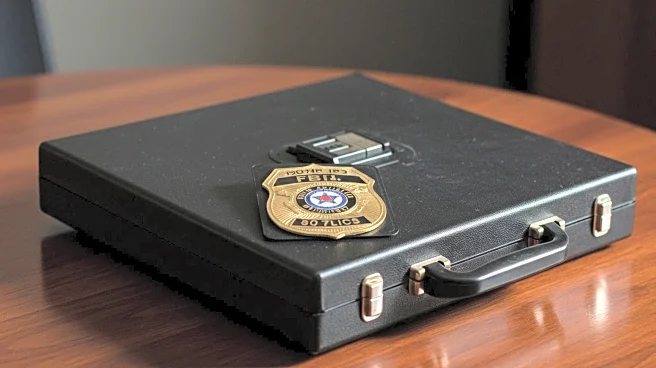What's Happening?
The FBI executed a search warrant at the home of John Bolton, former national security adviser to President Trump, in Bethesda, Maryland. The search, which took place early Friday morning, was part of an investigation into whether Bolton disclosed classified information in his 2020 book. Bolton was not present during the search, but his wife was seen speaking with agents. The event drew significant media attention, with numerous news cameras and local residents gathering to witness the proceedings. The search has sparked discussions about the potential use of law enforcement powers against political adversaries.
Why It's Important?
The search of Bolton's home underscores ongoing tensions between President Trump and his former adviser, who has been a vocal critic since his dismissal. This development raises concerns about the potential politicization of law enforcement, as Bolton's criticism of Trump has been well-documented. The investigation into Bolton's handling of classified information could have broader implications for how the government manages sensitive data and the legal boundaries of publishing such information. The situation also highlights the delicate balance between national security and freedom of speech, particularly for former government officials.
What's Next?
The investigation into Bolton's actions is expected to continue, with potential legal proceedings if evidence of wrongdoing is found. The Justice Department's handling of the case will be closely scrutinized, especially given the political context. Reactions from political leaders and civil society groups may influence public perception of the investigation's legitimacy. Additionally, the outcome could impact future cases involving the publication of classified information by former officials.
Beyond the Headlines
The search of Bolton's home may have deeper implications for the relationship between the executive branch and intelligence agencies. The use of intelligence collected overseas by the CIA as part of the warrant raises questions about the intersection of domestic law enforcement and international intelligence operations. This case could set precedents for how similar situations are handled in the future, potentially affecting the legal landscape for whistleblowers and authors of political memoirs.








